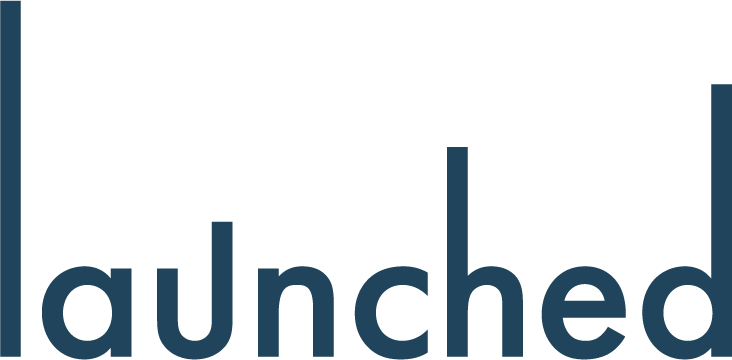In the digital marketing universe, the right automation tool can be the difference between good and great results. Let’s delve into the details of some leading marketing automation tools and compare their strengths.

HubSpot: The All-Rounder
HubSpot stands out with its comprehensive CRM capabilities, which allow for seamless tracking of the customer journey from first interaction to sale. Its user-friendly interface is excellent for teams looking for an intuitive experience without sacrificing depth in features. With tools for blog posting, SEO, social media, email, and more, HubSpot’s integrated platform is designed for teams that desire a holistic approach to inbound marketing.
Pros:
- Comprehensive all-in-one platform integrating CRM, blogging, social media, email, and analytics.
- User-friendly interface with robust support and training resources.
- Strong inbound marketing capabilities with excellent SEO and content creation tools.
Cons:
- Can become expensive as you scale and require additional features or contacts.
- Some advanced features may require a steeper learning curve or additional onboarding.

Marketo: The Lead Management Maestro
Marketo specializes in lead nurturing and scoring, making it a robust choice for teams focused on converting and scoring leads at various stages. Its integration with multiple platforms, including Salesforce, provides a cohesive environment for sales and marketing alignment. Marketo’s comprehensive analytics help teams measure and optimize campaign impact.
Pros:
- Deep lead management features including nurturing, scoring, and complex triggers.
- Flexible and powerful for multi-channel campaign management.
- Good integration with various CRM systems, especially Salesforce.
Cons:
- Interface is less intuitive compared to some competitors, which can pose a learning challenge.
- Costly for smaller teams; better suited for enterprises with larger budgets.

Pardot: The B2B Specialist
Owned by Salesforce, Pardot offers a tight integration with Salesforce CRM, streamlining lead management and nurturing for B2B marketers. Its email marketing automation, targeted email campaigns, and lead scoring are key features that support personalized marketing at scale. Pardot is ideal for teams already invested in Salesforce who want to leverage automation for complex sales cycles.
Pros:
- Seamless integration with Salesforce CRM, great for aligning sales and marketing.
- Advanced email marketing features and personalized lead nurturing paths.
- Strong B2B focus with features tailored to B2B sales cycles and lead management.
Cons:
- Higher cost barrier and can be complex to set up without Salesforce expertise.
- Some users may find the tool less intuitive and the interface a bit dated.

Mailchimp: The Beginner-Friendly Platform
Mailchimp has evolved from an email marketing platform to a full marketing automation solution. It’s known for its simplicity and ease of use, making it accessible for smaller teams or those just starting with automation. With features like content creation, audience segmentation, and performance tracking, Mailchimp is suitable for teams needing a straightforward, no-frills automation tool.
Pros:
- User-friendly and excellent for those new to marketing automation.
- Affordable with a free tier for basic email marketing needs.
- Direct and straightforward email creation and campaign management tools.
Cons:
- Lacks some of the advanced automation and integration features of other platforms.
- As businesses grow, they might outgrow Mailchimp and require a more robust solution.

ActiveCampaign: The Customer Experience Optimizer
ActiveCampaign’s strength lies in its customer experience automation. It combines email marketing, automation, sales automation, and CRM capabilities, allowing teams to create a smooth transition from prospecting to closing a sale. Its robust site tracking and event tracking features help tailor the marketing experience to the user’s behavior, which is a boon for teams aiming to create highly personalized customer journeys.
Pros:
- Strong email marketing and automation workflows with detailed segmentation.
- Excellent customer experience automation tying in CRM, email marketing, and messaging.
- Advanced tracking features to personalize the user journey effectively.
Cons:
- CRM is not as robust as standalone CRM systems, may not be suitable for large enterprises.
- Some users find the reporting capabilities could be more advanced.
Comparing the Contenders
When comparing these tools, consider your team’s specific needs:
- HubSpot is best for teams wanting an all-in-one solution with strong content marketing and SEO tools.
- Marketo excels in lead management and is ideal for larger teams with complex marketing strategies that require detailed analytics.
- Pardot is the go-to for Salesforce users, offering advanced B2B marketing features and seamless integration with the CRM.
- Mailchimp serves teams looking for an easy entry point into marketing automation with a focus on email marketing.
- ActiveCampaign fits teams that prioritize advanced segmentation and personalized customer experiences across various touchpoints.
Conclusion: Selecting the Best Tool for Your Team
Choosing the right marketing automation tool involves weighing your team’s size, marketing strategy complexity, CRM needs, and personalization requirements. Each tool offers unique benefits, and the best choice will align with your team’s goals, technical expertise, and desired customer experience.
Share via:



